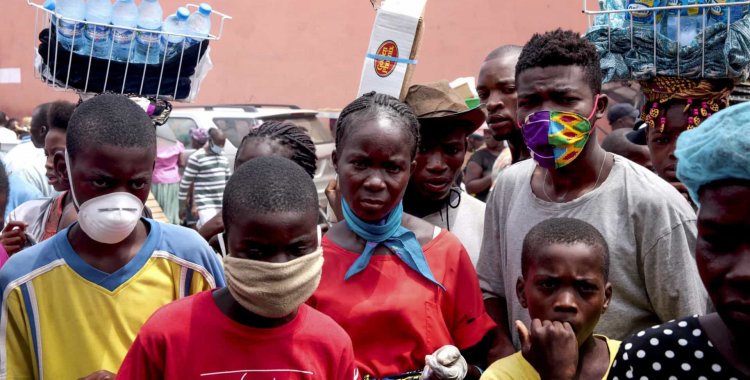The position was expressed this Monday by the Executive Director of the Gender Observatory, Delma Monteiro, in an analysis of the state of emergency decreed in the country last week to combat the pandemic caused by the new coronavirus.
Angola has already registered the first two deaths of seven positive Covid-19 cases, and a number of preventive measures to combat the pandemic are underway, including social isolation for 15 days, under a presidential decree that declared a state of emergency.
"It is important that we know how to contextualise this fight, that we know how to really contextualise the state of emergency, because I believe that the virus for many people - and without wanting to minimise the risk of the virus - is a possibility, but to stay at home is a reality: hunger", said Delma Monteiro in statements to the Lusa agency.
The activist stressed that Angolans have put the reality of "facing the reality of hunger or risking the possibility of contamination" in the balance.
According to Delma Monteiro, it is important to have all these elements "in order to be able to fight a more contextualized and realistic combat".
The executive director of the Gender Observatory pointed out that when the state of emergency was declared and the issue of social isolation became compulsory, the NGO was concerned about the situation of zungueiras "and all the poor families who have no way, for example, to make a significant stock of food at home".
"We understood that people would come to a time when they would have to decide: either we will stay at home and starve to death or we will risk ourselves and expose ourselves to the virus", she said.
Delma Monteiro said another concern is also related to the hygiene measures announced by the health authorities, such as the orientation to wash hands with soap and water.
According to the activist, despite the publicity for the distribution of water by cisterns, which has been reported in the media, the NGO has "already had the opportunity to confirm that, after all, it is more of an advertisement".
"I particularly called on Saturday, I called again on Sunday, I called again today [Monday] and the answer is that 'Viana km9 A' is not registered as an area that needs water. I live in the peripheral area of the city, I am proud to say that, and there is no water running here, we live in cisterns", he exemplified.
Delma Monteiro said the country's water supply difficulties are a reality, and cisterns have been fought for some time because it's illegal to collect water illegally. However, at this time, the government does not have the capacity to serve the population.
"We are without water and most poor families in this country have to face this dilemma every day: will I look for water or will I stay at home and hide from the virus? I'm going to look for food or I'm going to stay at home and hide from the virus?", he stressed.
Delma Monteiro also considered it important to deconstruct the call to use alcohol gel and 70 per cent alcohol, "because, in fact, it's a luxury that most families don't have".
"I talked to zungueiras who have never heard of alcohol gel in their lives, it's a novelty", she stressed, adding that water and soap are more efficient for fighting the new coronavirus.
The activist noted that some of the street vendors are aware of the risk and are reinventing their activity.
"I heard stories of zungueiras who started to distribute their contact to their most regular families, asking them to call if they need anything," she said.







